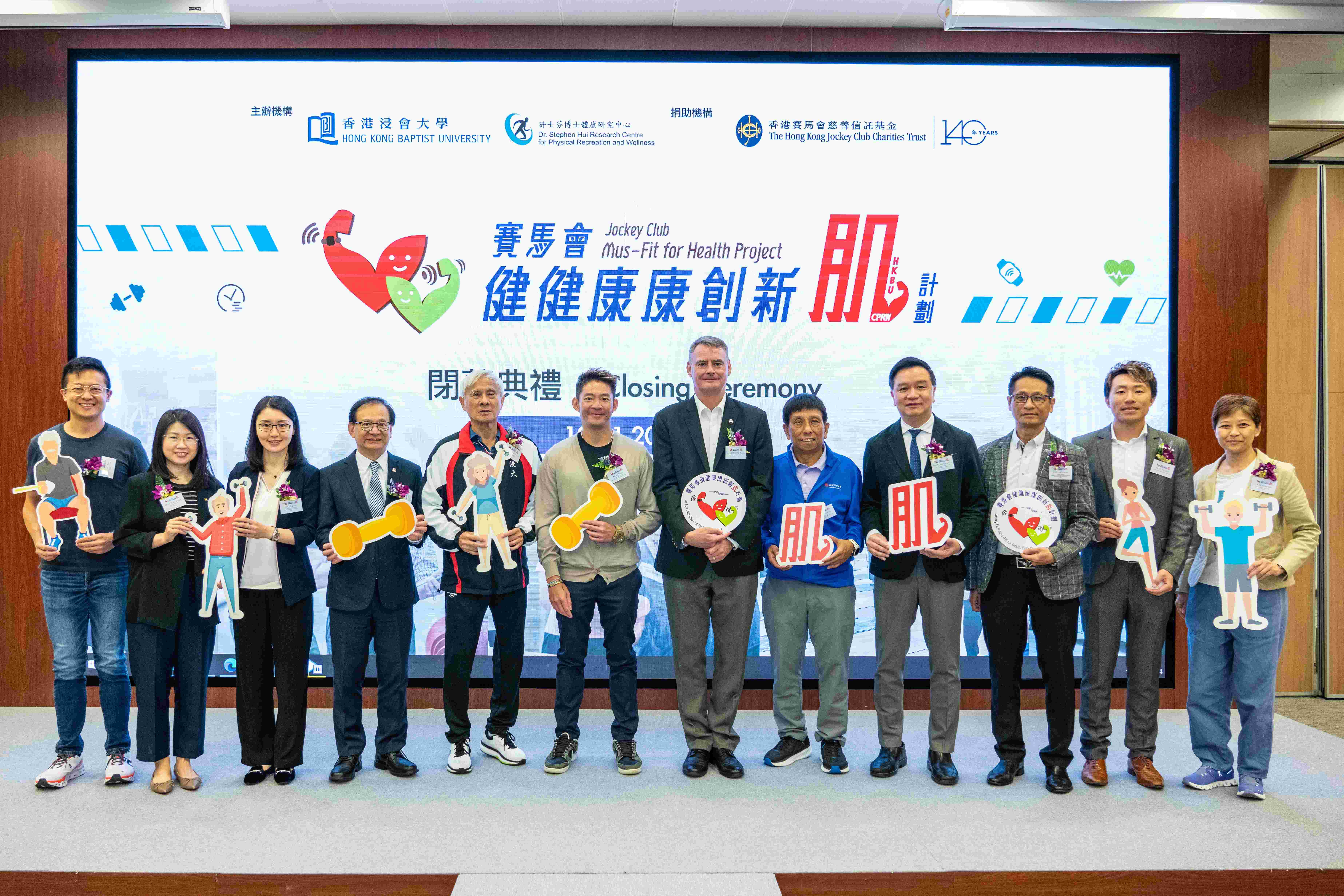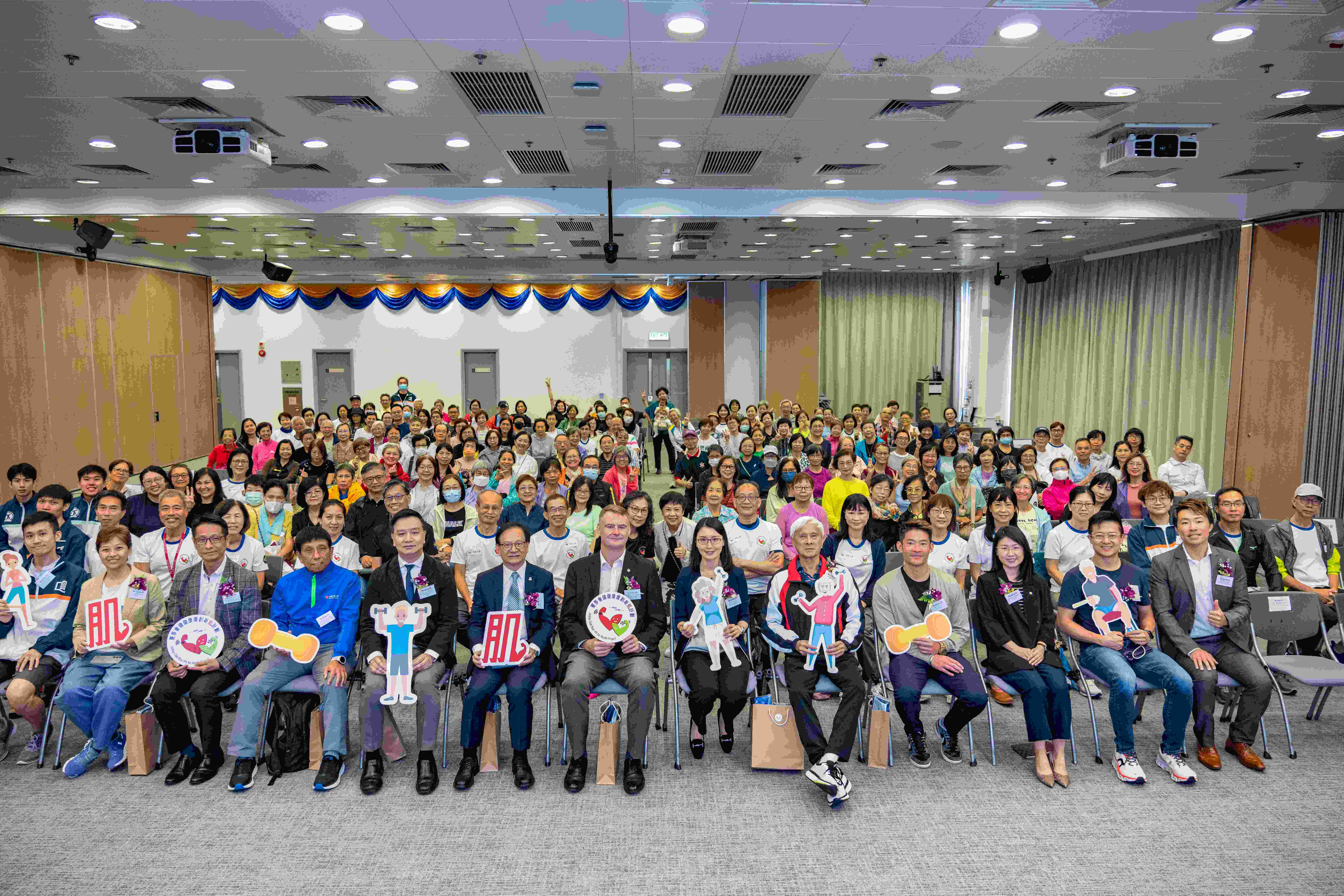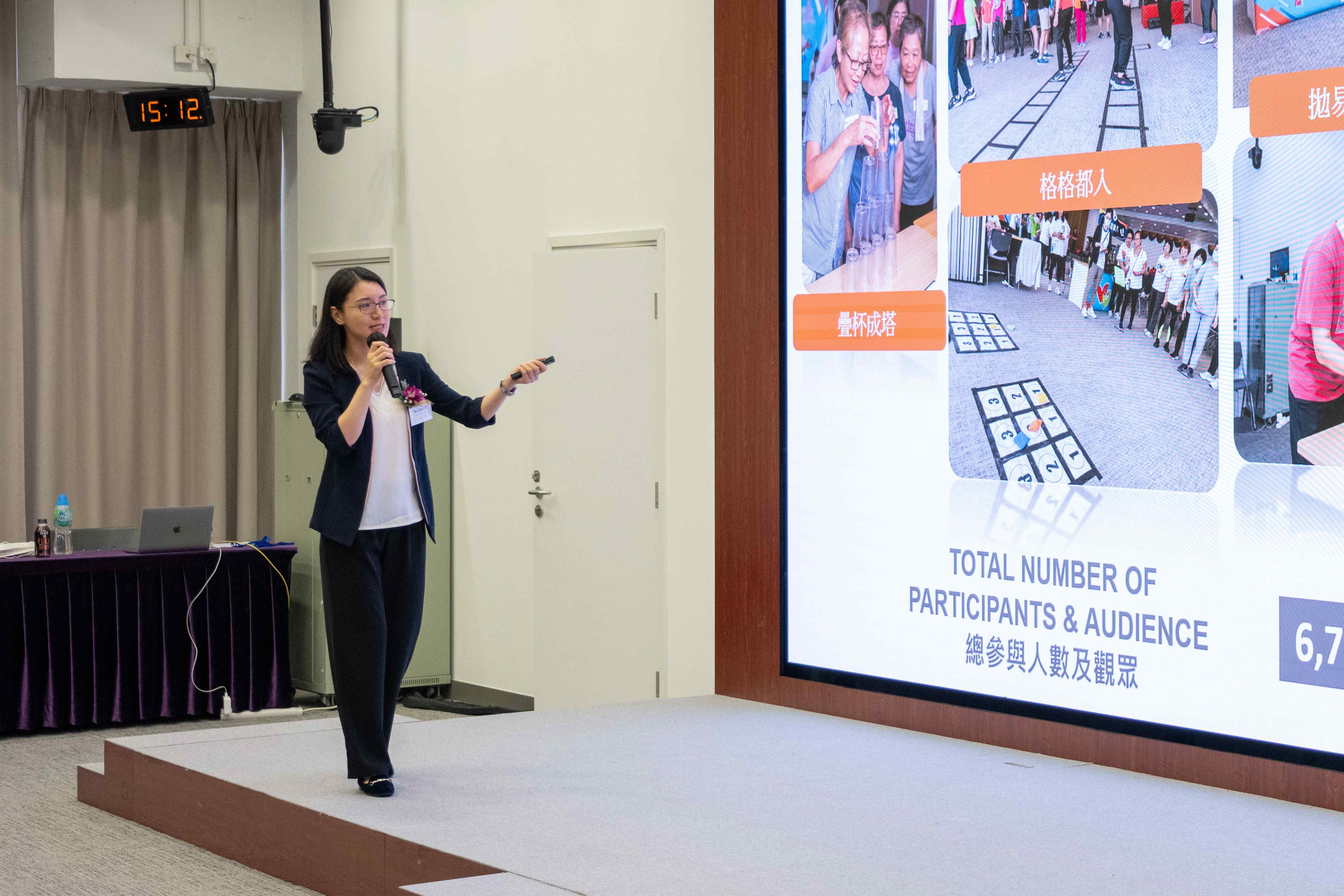Press Release
HKBU’s “Jockey Club Mus-Fit for Health Project” effectively promotes healthy lifestyle
Monday, 11 November 2024
The Dr. Stephen Hui Research Centre for Physical Recreation and Wellness (CPRW) at Hong Kong Baptist University (HKBU) received funding from The Hong Kong Jockey Club Charities Trust to launch the three-year “Jockey Club Mus-Fit for Health Project” (Mus-Health) in December 2021. To date, the project has provided a 12-week training programme to approximately 5,400 people aged between 50 and 70. The vast majority of participants reported greater enjoyment and willingness to exercise and reduced sedentary behavior. Their average weight and body fat also decreased, while their muscle percentage and physical fitness showed improvement.
The closing ceremony of Mus-Health was held on 10 November on HKBU campus. The officiating guests included Mr Robbie Mcrobbie, Executive Manager, Charities (Sports) of The Hong Kong Jockey Club; Professor Frank Fu Hoo-kin, Emeritus Professor and Honorary Director of the Dr. Stephen Hui Research Centre for Physical Recreation and Wellness at HKBU; Mr John Hui, representative of Dr. Stephen Hui’s Family and Director of Central Management Limited; Professor David Man, Vice President (Academic) of the Tung Wah College; Professor Patrick Yung Shu-hang, Associate Dean (Mainland Affairs) of the Faculty of Medicine and Chairman of the Department of Orthopaedics and Traumatology at the Chinese University of Hong Kong; Dr Lobo Louie Hung-tak, Senior Lecturer of the Department of Health and Physical Education at the Education University of Hong Kong; and Professor Patrick Lau Wing-chung, Associate Director of the Academy of Wellness and Human Development of the Faculty of Arts and Social Sciences at HKBU.
In his speech at the ceremony, Mr Robbie Mcrobbie said “The wellbeing of our elderly community has long been the focus of The Hong Kong Jockey Club Charity Trust, which supports initiatives to enhance physical and mental health of our community. Mus-Health is a fantastic example of promoting active aging in the community.” He also said that he was delighted to see the encouraging results of the project and expressed his heartfelt thanks to HKBU for their continual commitment to promote wellbeing in the community.”
Since the launch of Mus-Health, around 60 NGOs have participated in community activities under the initiative. It has trained more than 700 ambassadors and offered more than 470 training programmes, each lasting 12 weeks, to about 5,400 people aged between 50 to 70. The programme aims to increase their muscle strength, endurance, balance, and flexibility, while helping them establish regular exercise habits and maintain a healthy body, thereby fostering a vibrant life.
The project also promoted the messages of “better muscles better health” and “ageing will not impede regular exercise and training” through mobile vehicles across the 18 districts of Hong Kong from September to December 2022. As many as 12,000 people participated in the mobile vehicle promotional activities.
Dr Jiao Jiao, Project-in-Charge and Research Assistant Professor of the Department of Sport, Physical Education and Health of the Academy of Wellness and Human Development under the Faculty of Arts and Social Sciences at HKBU, announced the results of the project during the closing ceremony. According to a survey of more than 3,400 participants in the training programme, nearly 98% agreed that they gained more knowledge and learned more methods about regular exercise, enabling them to maintain a healthy lifestyle through exercise. Nearly 100% agreed or strongly agreed that they experienced greater enjoyment and willingness to exercise, while over 97% agreed or strongly agreed that they had reduced their sedentary behavior.
Participants also underwent tests of body composition, muscle mass and strength, and physical fitness. A comparison of test results before and after the training programme showed significant improvements across all measures: the average muscle mass increased by 0.37%, the average body mass index (BMI) decreased by 0.039 units (equivalent to 0.277 kg), and body fat percentage (body fat rate) also reduced by 0.287%.
In conclusion, 13% of participants recorded a decrease in BMI of 0.6 units (approximately 1 kg), while 10% experienced a significant reduction in body fat percentage of more than 2.5%.
Dr Jiao said that the effects of this 12-week training programme on middle-aged and elderly people are encouraging. The survey results showed that the programme can continuously improve body fat reduction, muscle mass, and physical fitness. She hopes that the general public can continue exercising in order to maintain both physical and mental health.
- End –


